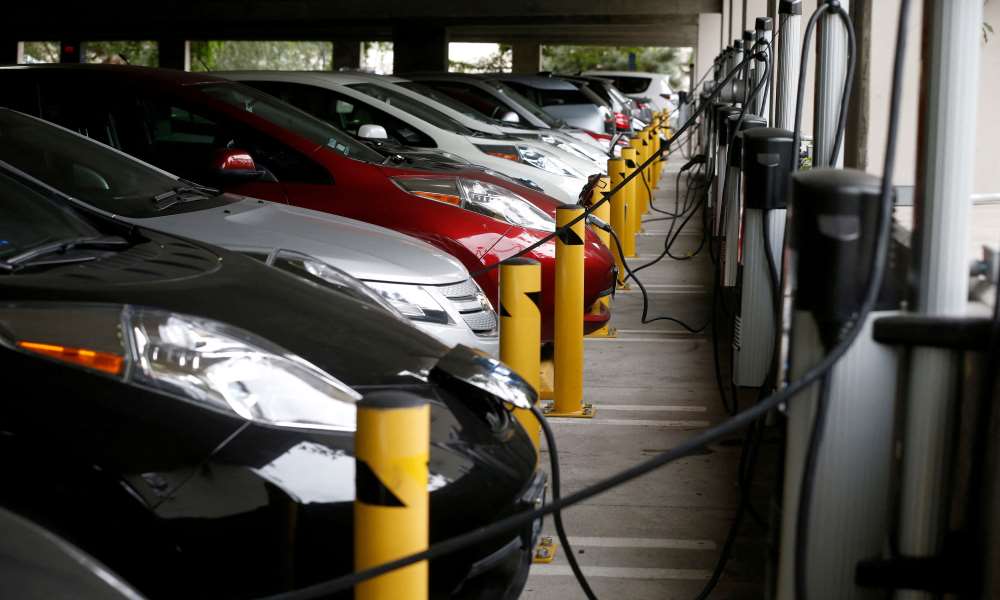South Africa could lose 100 000 jobs
Car manufacturing needs decarbonise
The European Union has given local vehicle exporters until 2030 to decarbonise the sector, after which they will stop importing internal combustion engine vehicles assembled in South Africa.
South Africa's manufacturing sector needs to move urgently towards producing electric vehicles, or around 100 000 jobs could be wiped out in the next five years as key export destinations move to ban petrol and diesel cars, Minister in the Presidency Mondli Gungubele has warned.The European Union has given local vehicle exporters until 2030 to decarbonise the sector, after which they will stop importing internal combustion engine vehicles assembled in South Africa.
"If we don't move in pace with that call, no fewer than 100 000 jobs are under threat. In other words, in that sector, we lose our status as a stakeholder and trading partner in the sector beyond that period," Gungubele told Parliament's Portfolio Committee on Mineral Resources and Energy on Tuesday.
Gungubele was talking about the country's Just Energy Transition (JET) Investment Plan, which prioritises investment in the energy sector, electric vehicles, and green hydrogen from 2023 to 2027.
The plan sets out a goal to decarbonise South Africa's economy by 2030 in a manner that preserves the environment, the economy, and livelihoods. The plan outlines spending of R1.5 trillion in five years but currently has an estimated funding gap of 44% or R700 billion.
In his capacity as chair of the interministerial committee on the JET Investment Plan, Gungubele said South Africa had to consider the environmental and economic implications of climate change on the journey towards achieving net zero emissions by 2050.
Gungugele said the floods in KwaZulu-Natal earlier this year were an example of the immediate risks associated with ignoring or postponing climate change priorities and targets for South Africa.
"The attitude we adopt is that we want to take control of our own transition. We want to take control of our own navigation such that the sort of control we are taking responds to the unique situation of our country," he said.
Head of the Presidential Climate Change Task Team, Daniel Mminele, told the committee that South Africa's problems with inequality, low growth, and an insecure electricity supply were adding to the country's climate vulnerability.
Carbon
Mminele said that if South Africa did not respond to the "degree of carbon embedded in our commodities and our products while trading partners were pushing for net zero emissions, it will "directly affect the demand for South African commodities, which will have implications for foreign exchange earnings, for the balance of payments, and so on".
Mminele said the electricity sector will be prioritised as it makes up roughly 45% of SA's overall greenhouse gas emissions. The transport sector - which is "a significant employer and earner of export revenue" - and green hydrogen's "nascent" potential will follow.
"In terms of the total investment needs of the roughly R1.5 trillion plan in relation to these three sectors and where the investments are required, the bulk of the investments, around 70% or so, is required from the electricity sector, with about 22% going into green hydrogen and the balance going into new energy vehicles," Mminele said.
Just over a trillion rand of the investments will be needed in the electricity sector, he said.
He stressed that none of these interventions will be implemented in a way that worsens energy insecurity, further harms South Africa's fiscal position, or does away with the livelihoods of ordinary South Africans.
Mminele said South Africa would continue mobilising for more funding from other countries, regional economic groupings, and philanthropies. He said the outstanding amount will be raised from "as diverse a set of funders as we can get".
He said €600 million was secured and would begin to flow into the system next year from French and German financing institutions.-Fin24



